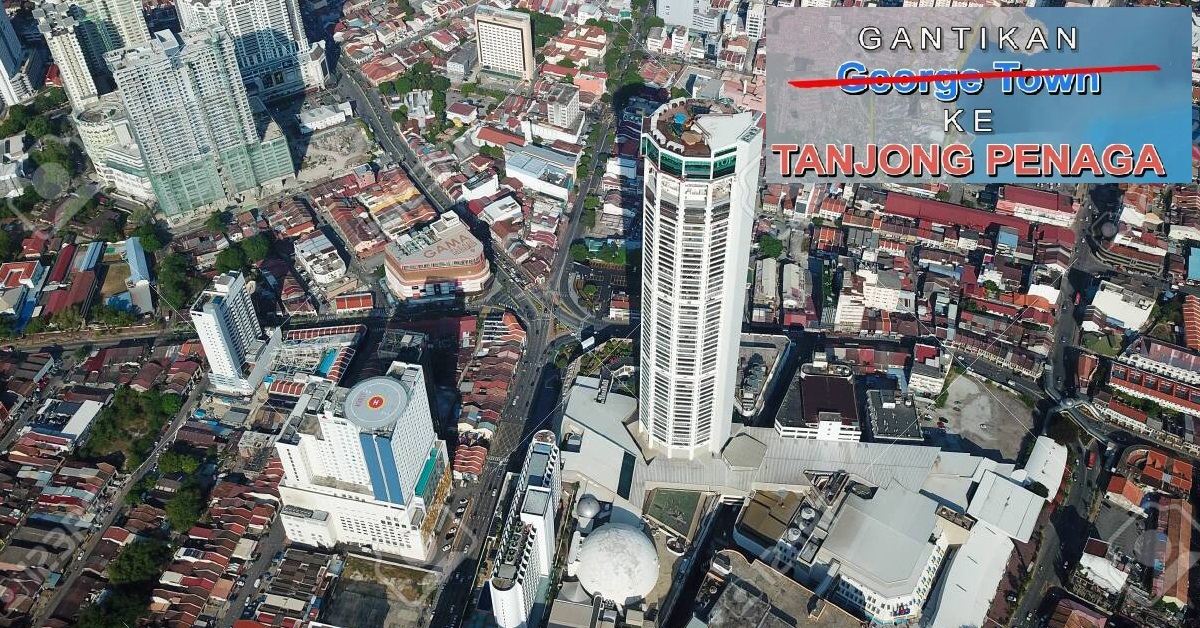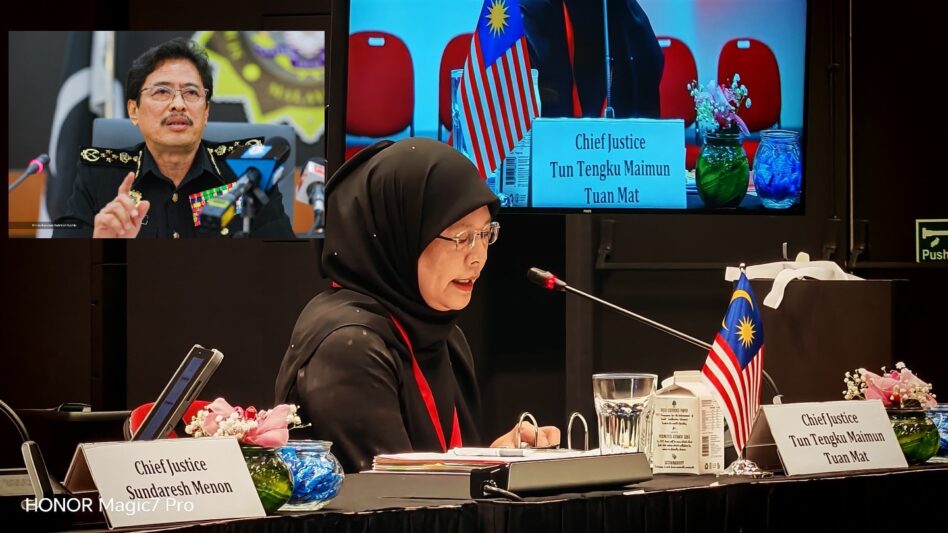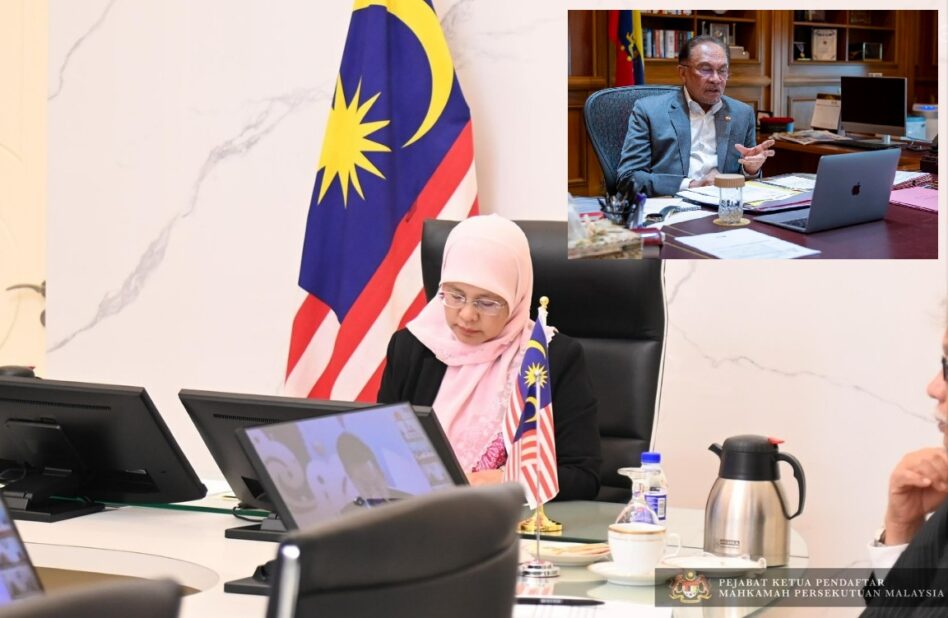A POST on X (formerly Twitter) asking a pertinent question on the nation’s colonial heritage has sparked quite an interesting debate.
The post by social media influencer group The Patriots (@thepatriotsasia) queried why so many former colonies change names of places to their original monikers.
“Untuk Apa Guna Nama Penjajah?”
Pernah tak anda terfikir kenapa banyak tempat kat dunia ni tukar nama mereka dari nama yang penjajah bagi ke nama yang lebih dekat dengan penduduk setempat? pic.twitter.com/jk7FUuBcBH
— The Patriots (@thepatriotsasia) July 22, 2024
The poster illustrated his point by sharing various examples from abroad, each with a brief history lesson.
One example cited was India where major cities have reverted to their original names such as Mumbai (previously Bombay).
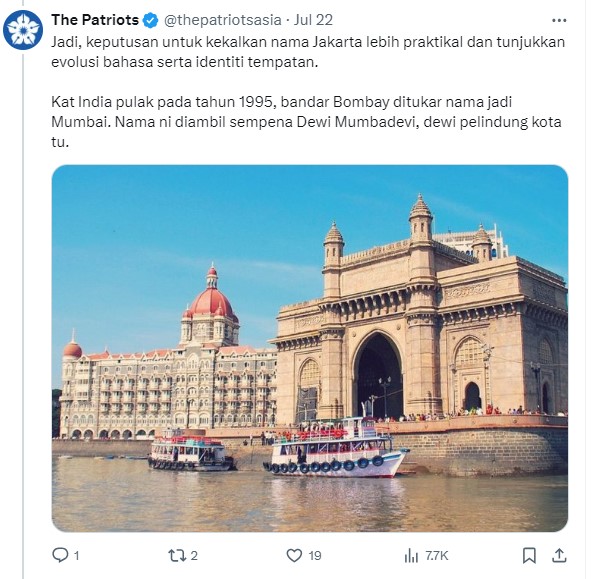
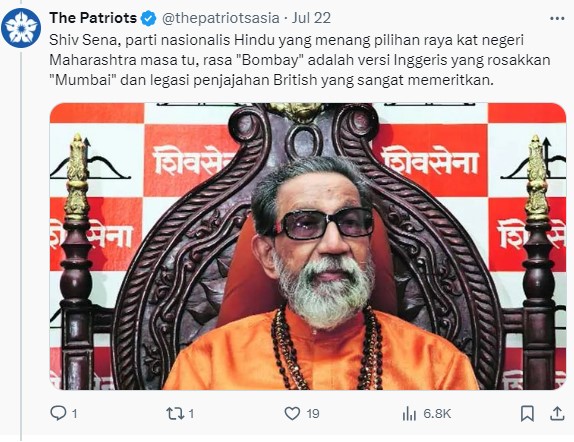
The post went further contending that the current ruling Shiv Sena party in India has even sought to change unofficial monikers such as “Bollywood” with the Hindu nationalist party saying the connections to Hollywood were spurious and not reflective of subcontinent culture.
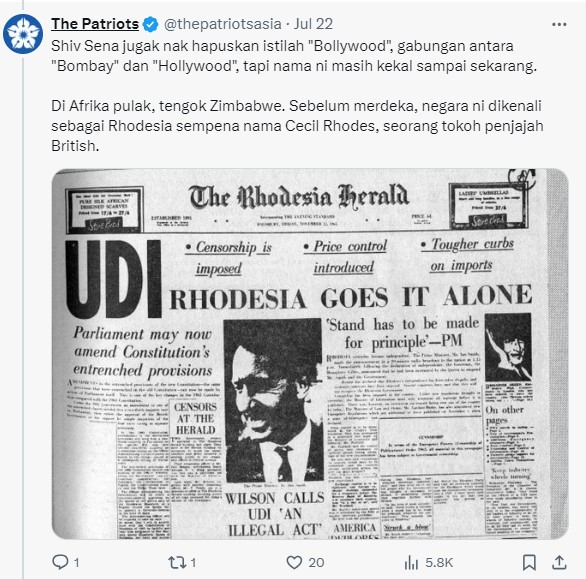
It was also claimed that these colonial names were just an attempt to whitewash the heritage and legacy of the original places and its population.
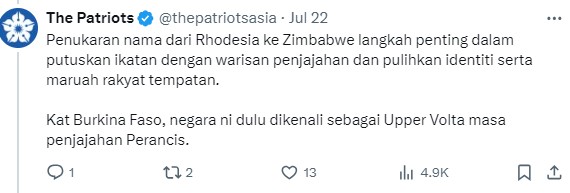
The Patriots describes itself as collection of people from different walks of life, age, race and religion that comes together to form a community of peace and tolerance.
It further reckoned that many of the original names had significant cultural and historical significance. The process of reconnecting with those roots has already begun in Malaysia with a number of places reverting to their original names.

The post cited a number of local examples including Port Klang and Teluk Intan. It very pointedly asks what is the point of using the old colonial names?
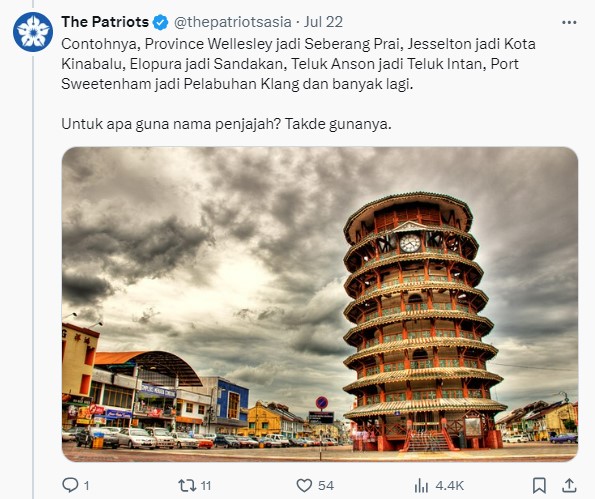
The post also asserted that such colonial names were a bitter reminder of a painful past.

There were plenty of reaction to the above observations and suggestion. A few commenters cited other examples where places (or even race of people) reverted to the original names.
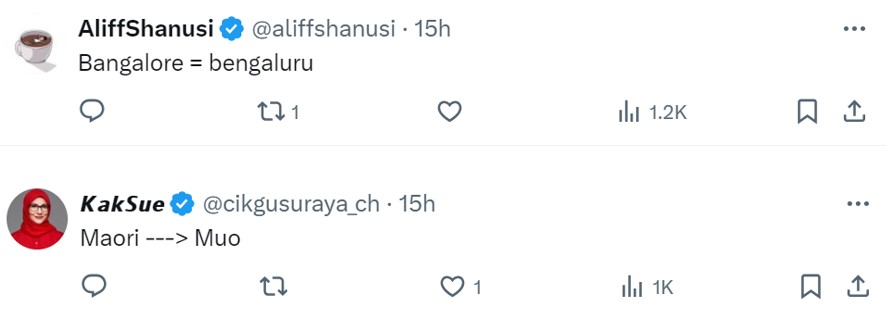
Some highlighted local examples where a name change should be initiated.
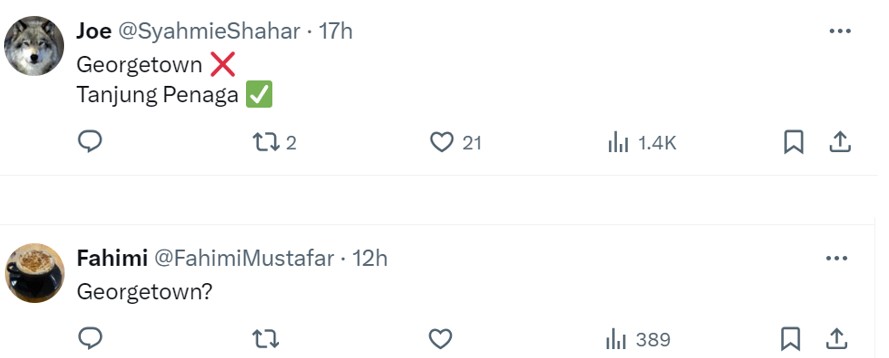
One netizen though counselled that any name change should contain LESS not MORE syllables to make it simpler.

However, one netizen saw no problem using the colonial names given some locals have grown accustomed to the moniker. It was suggested more modern and easier to remember names be used should any changes be made.

Though one pointed out that not all local names were suitable.

One netizen cheekily remarked that local names were not “modern sounding” and needed some westernisation to sound like a hip destination.

It must, however, be noted that the new name of places must truly reflect the cultural identity and heritage of a particular place.
It should not be another exercise in imposing a set of values or forcing an identity that is unconnected or unreflective of the area.
For instance, naming a town after a VVIP who has no connection to it but is merely an exercise in self-glorification or a move to gain political mileage. Doing so will not be different from what the colonial masters were doing.
Whatever one’s views are on this matter, it certainly food for thought. – July 24, 2024


